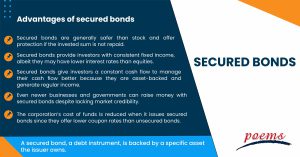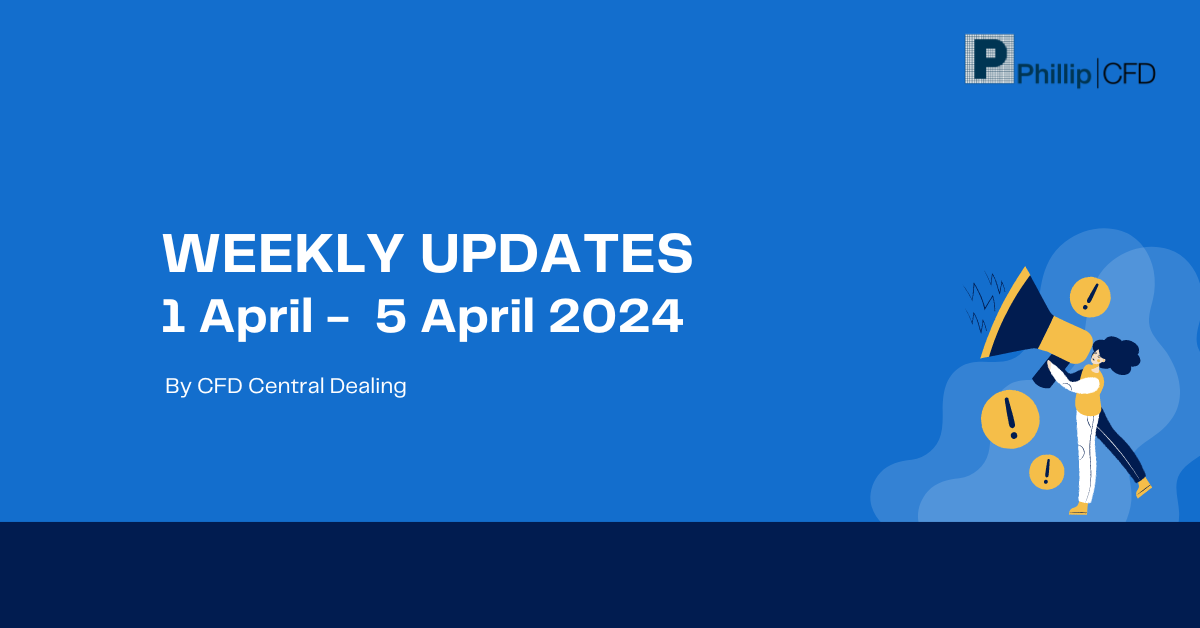Secured bonds
Table of Contents
Secured bonds
A large corporation or a government organisation may issue bonds as a debt instrument to raise capital. Regardless of who gives it, a bond can be divided into two groups. The two types of bonds are secured and unsecured. A secured bond’s issuer will offer a specific asset as collateral and levy a lower interest rate than they would for an unsecured bond.
What is a secured bond?
A secured bond, a debt instrument, is backed by a specific asset the issuer owns. The item is used as security for the loan. Bondholders acquire ownership of the asset in the event of an issuer default. Bonds backed by an income stream from the project they were issued to finance are also permitted.
As investors in secured bonds are at least partially reimbursed for their investment if the issuer defaults, secure bonds are viewed as less risky than unsecured bonds. Mortgage bonds and certificates issued by equipment trusts are examples of secured bonds. Assets like real estate, machinery, or a stream of income may be used as collateral for them.
Understanding the secured bond
A bond is a secured bond if assets are used to support it. The collaterals in this situation are the assets that, if the business defaults, may be utilised to totally or partially recoup your principal or coupon payment. Liquid financial assets like stocks or tangible assets like factories, real estate, and other property may back a secured bond. These debt products are safer than equity instruments because the issuer’s assets guarantee the bonds.
Mortgages are one type of fast loan; if you don’t repay it, the bank will seize your home. A bond is secured if there is collateral supporting it. If the issuer cannot pay the interest and principal owing to bondholders, the collateral will be liquidated, and the revenues will be divided among the bondholders.
Advantages of secured bonds
The following are the advantages of secured bonds:
- Secured bonds are generally safer than stock and offer protection if the invested sum is not repaid.
- Secured bonds provide investors with consistent fixed income, albeit they may have lower interest rates than equities.
- Secured bonds give investors a constant cash flow to manage their cash flow better because they are asset-backed and generate regular income.
- Even newer businesses and governments can raise money with secured bonds despite lacking market credibility.
- The corporation’s cost of funds is reduced when it issues secured bonds since they offer lower coupon rates than unsecured bonds.

Disadvantages of secured bonds
The following are the disadvantages of secured bonds:
- The investor will lose money if the market interest rate increases more than the bond rate since his coupon payment would be lower.
- When interest rates rise in the market, bonds lose value, and if an investor wants to sell them, they will be worth less than the market.
- In the event of a default, the principal amount repayment may be impacted if the market value of the collateralized asset decreases.
- An expanding economy will affect the bond rate if the coupon rate is not tied to the market rate.
- When an asset’s market value declines during a recession, the investor’s principal is frozen or can only be recovered to a lesser extent.
Risks involved in investing in a secured bond
The following are the risks involved in investing in a secured bond:
- You risk losing your money if the collateral loses its market value or becomes unsellable.
- You risk losing money if the bond’s issuer supplies collateral intending to defraud.
- The value of the bond on the secondary market will be impacted by changes in the economy’s interest rates, and it may change if someone wants to sell the bond before it matures. The coupon and principal will be paid if the bond is held until maturity.
- There may be a lock-in period for these bonds, and you may be unable to redeem them. You may have a liquidity risk in which your money is unavailable when needed.
Frequently Asked Questions
A secured bond is a financial instrument that offers protection against default and is backed by an asset (such as tangible assets, real estate, or a specified revenue source). Investors have priority over the bond issuer if the principal and interest due on the bond are not paid.
As investors in secured bonds are at least partially reimbursed for their investment if the issuer defaults, secured bonds are viewed as less risky than unsecured bonds.
A secured bond often carries a minimal chance of default. There is no collateral to support unsecured debt. Unsecured bonds are funded by lenders entirely based on the borrower’s creditworthiness and commitment to repay.
To buy senior secured bonds, investors typically work with a broker or financial advisor who can help them navigate the market and identify the most promising investment opportunities. Before investing in senior secured bonds, investors should do their due diligence and research the companies issuing the bonds to ensure they are financially stable and likely to be able to repay the bonds in full. It is also essential to monitor the performance of the bonds and adjust your investment strategy accordingly.
This is because the secured bonds have lower interest rates than unsecured bonds since they are less risky. And If the Company fails to make principal and interest payments when due, the bondholders have the first claim on the underlying property.
The risk of repayment is the primary distinction between secured and unsecured bonds. Even a novice investor may infer from their namesake that secured bonds are a safer place to park money than unsecured bonds.
Since there is less risk, secured bonds frequently have lower interest rates. Conversely, because of their increased risk, most unsecured bonds offer much higher interest rates. Secured bonds are the best option for investors unwilling to take on many risks. Large-company unsecured bonds are less risky.
Related Terms
- Notional amount
- Negative convexity
- Jumbo pools
- Inverse floater
- Forward Swap
- Underwriting risk
- Reinvestment risk
- Final Maturity Date
- Bullet Bonds
- Constant prepayment rate
- Covenants
- Companion tranche
- Savings bond calculator
- Variable-Interest Bonds
- Warrant Bonds
- Notional amount
- Negative convexity
- Jumbo pools
- Inverse floater
- Forward Swap
- Underwriting risk
- Reinvestment risk
- Final Maturity Date
- Bullet Bonds
- Constant prepayment rate
- Covenants
- Companion tranche
- Savings bond calculator
- Variable-Interest Bonds
- Warrant Bonds
- Eurobonds
- Emerging Market Bonds
- Serial bonds
- Equivalent Taxable Yield
- Equivalent Bond Yield
- Performance bond
- Death-Backed Bonds
- Joint bond
- Obligation bond
- Bond year
- Overhanging bonds
- Bond swap
- Concession bonds
- Adjustable-rate mortgage
- Bondholder
- Yen bond
- Liberty bonds
- Premium bond
- Gold bond
- Reset bonds
- Refunded bond
- Additional bonds test
- Corporate bonds
- Coupon payments
- Authority bond
- Clean price
- Revenue bonds
- Perpetual bonds
- Municipal bonds
- Quote-Driven Market
- Debenture
- Fixed-rate bond
- Zero-coupon bond
- Convexity
- Compounding
- Parallel bonds
- Junk bonds
- Green bonds
- Average maturity
- Investment grade bonds
- Convertible Bonds
Most Popular Terms
Other Terms
- Physical ETF
- Initial Public Offering
- Buyback
- Secondary Sharing
- Bookrunner
- Payment Date
- Secondary Market
- Margin Requirement
- Mark-to-market
- Pledged Asset
- Yield Pickup
- Subordinated Debt
- Trailing Stops
- Treasury Stock Method
- Stochastic Oscillator
- Basket Trade
- Contrarian Strategy
- Exchange Control
- Notional Value
- Relevant Cost
- Dow Theory
- Speculation
- Stub
- Trading Volume
- Going Long
- Pink sheet stocks
- Rand cost averaging
- Sustainable investment
- Stop-limit sell order
- Economic Bubble
- Ask Price
- Stock symbol
- Synthetic replication
- Bourse
- Beneficiary
- Witching Hour
- Widow and Orphan stock
- Public Float
- Closing Price
- Reverse stock splits
- Quiet period
- Prepayment risk
- Interpolation
- Homemade leverage
- Hyperdeflation
- Hope Credit
- Prime bank investments
- Purchasing power
- Futures contracts
- ESG
Know More about
Tools/Educational Resources
Markets Offered by POEMS
Read the Latest Market Journal

Back in Business: The Return of IPOs & Top Traded Counters in March 2024
Start trading on POEMS! Open a free account here! At a glance: Major indices continue...

Weekly Updates 15/4/24 – 19/4/24
This weekly update is designed to help you stay informed and relate economic and company...

From $50 to $100: Unveiling the Impact of Inflation
In recent years, inflation has become a hot topic, evoking strong emotions as the cost...

Japan’s Economic Resurgence: Unveiling the Tailwinds Behind Nikkei 225’s Record Leap
Source: eSignal, Intercontinental Exchange, Inc. In the heart of Japan’s economic landscape, the Nikkei 225...

Weekly Updates 8/4/24 – 12/4/24
This weekly update is designed to help you stay informed and relate economic and...

What Makes Forex Trading Attractive?
In a world where the click of a button can send goods across oceans and...

Weekly Updates 1/4/24 – 5/4/24
This weekly update is designed to help you stay informed and relate economic and company...

How to soar higher with Positive Carry!
As US Fed interest rates are predicted to rise 6 times this year, it’s best...












